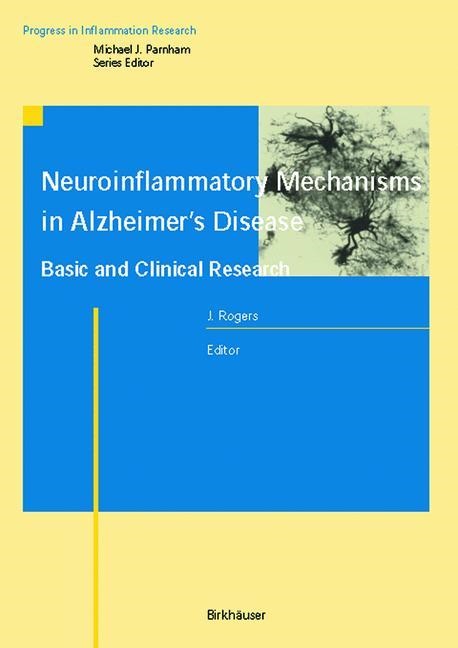En savoir plus
Research into inflammatory mechanisms that may cause damage to the Alzheimer's disease (AD) brain has now been ongoing for nearly two decades. Some two dozen clinical studies have strongly suggested that conventional anti-inflammatory drugs may be useful to delay the onset or slow the progression of the disorder. Moreover, virtually all the major systems of the innate immune response appear to be present, and most are upregulated, in pathologically-vulnerable regions of the AD brain. These new findings are described in this volume - first in overview form, followed by chapters on topics of special interest. In many ways, to understand AD brain inflammation, one need only review a text on peripheral inflammation biology, leaving out the chapters on humoral medi ators and substituting microglia for macrophages. In several other key respects, however, AD brain inflammation is unique, due primarily to idiosyncratic interac tions of inflammatory mediators and mechanisms with classical AD pathology: amyloid ~ peptide(A~) deposits and neurofibrillary tangles (NFTs). For this reason, some key concepts about the inflammation that occurs in AD may warrant discus sion in preparation for the more detailed chapters that follow.
Table des matières
Basic Research Overview.- Cellular and molecular mechanisms of Alzheimer's disease inflammation.- Clinical Research Overview.- Anti-inflammatory agents as possible protective factors for Alzheimer's disease: Analysis of relevant epidemiological studies.- Topics of Special Interest.- Role and regulation of early complement activation products in Alzheimer's disease.- Complement mediator systems in Alzheimer's disease.- Amyloid ? peptide interactions with the classical pathway of complement.- Physiology and biochemistry of the interleukin-6 receptor complex. Implications for CNS disorders and Alzheimer's disease.- Interactions of ?2-macroglobulin and amyloid ? peptide.- Proinflammatory actions of derivatives of the ? amyloid precursor protein.- The involvement of glial cell-derived reactive oxygen and nitrogen species in Alzheimer's disease.- The role of cyclooxygenase in Alzheimer's disease neurodegeneration.- Microglia.- Neurons.- The gero-inflammatory manifold.
Résumé
Research into inflammatory mechanisms that may cause damage to the Alzheimer's disease (AD) brain has now been ongoing for nearly two decades. Some two dozen clinical studies have strongly suggested that conventional anti-inflammatory drugs may be useful to delay the onset or slow the progression of the disorder. Moreover, virtually all the major systems of the innate immune response appear to be present, and most are upregulated, in pathologically-vulnerable regions of the AD brain. These new findings are described in this volume - first in overview form, followed by chapters on topics of special interest. In many ways, to understand AD brain inflammation, one need only review a text on peripheral inflammation biology, leaving out the chapters on humoral medi ators and substituting microglia for macrophages. In several other key respects, however, AD brain inflammation is unique, due primarily to idiosyncratic interac tions of inflammatory mediators and mechanisms with classical AD pathology: amyloid ~ peptide(A~) deposits and neurofibrillary tangles (NFTs). For this reason, some key concepts about the inflammation that occurs in AD may warrant discus sion in preparation for the more detailed chapters that follow.

